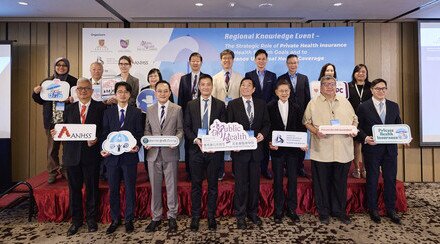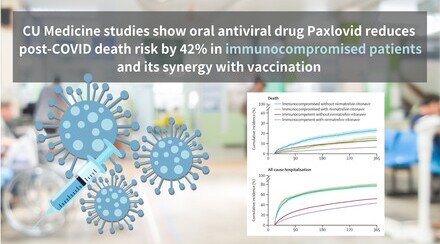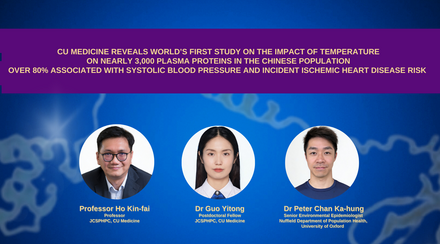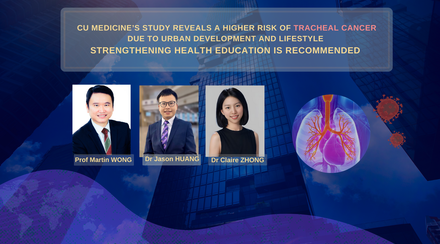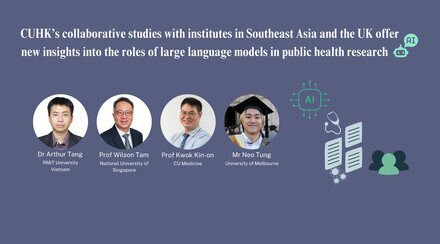Jockey Club S.A.T.H. Project for Healthy Families launches second phase to enhance mental well-being among ethnically-diverse communities in Hong Kong
To strengthen support for the city’s ethnically-diverse communities, the Jockey Club “Sustainability for All, Together for Health (S.A.T.H.)” Project for Healthy Families (JCSATH) has announced the official launch of its second phase. The new phase will further expand JCSATH’s existing services for physical well-being and introduce new mental health initiatives tailored to Hong Kong’s ethnically-diverse communities.
Funded by The Hong Kong Jockey Club Charities Trust, the second phase of JCSATH will be coordinated for the next three years by the Jockey Club School of Public Health and Primary Care under The Chinese University of Hong Kong (CUHK)’s Faculty of Medicine (CU Medicine), in partnership with Hong Kong Christian Service, Hong Kong Sheng Kung Hui Lady MacLehose Centre, Hong Kong Sheng Kung Hui Welfare Council Limited and the Neighbourhood Advice-Action Council. The first phase of JCSATH served more than 1,700 South Asian adults, providing them with health checks and medical advice. The team found that a large number of participants have hidden chronic health problems and about 10% of them showed symptoms of depression or anxiety.
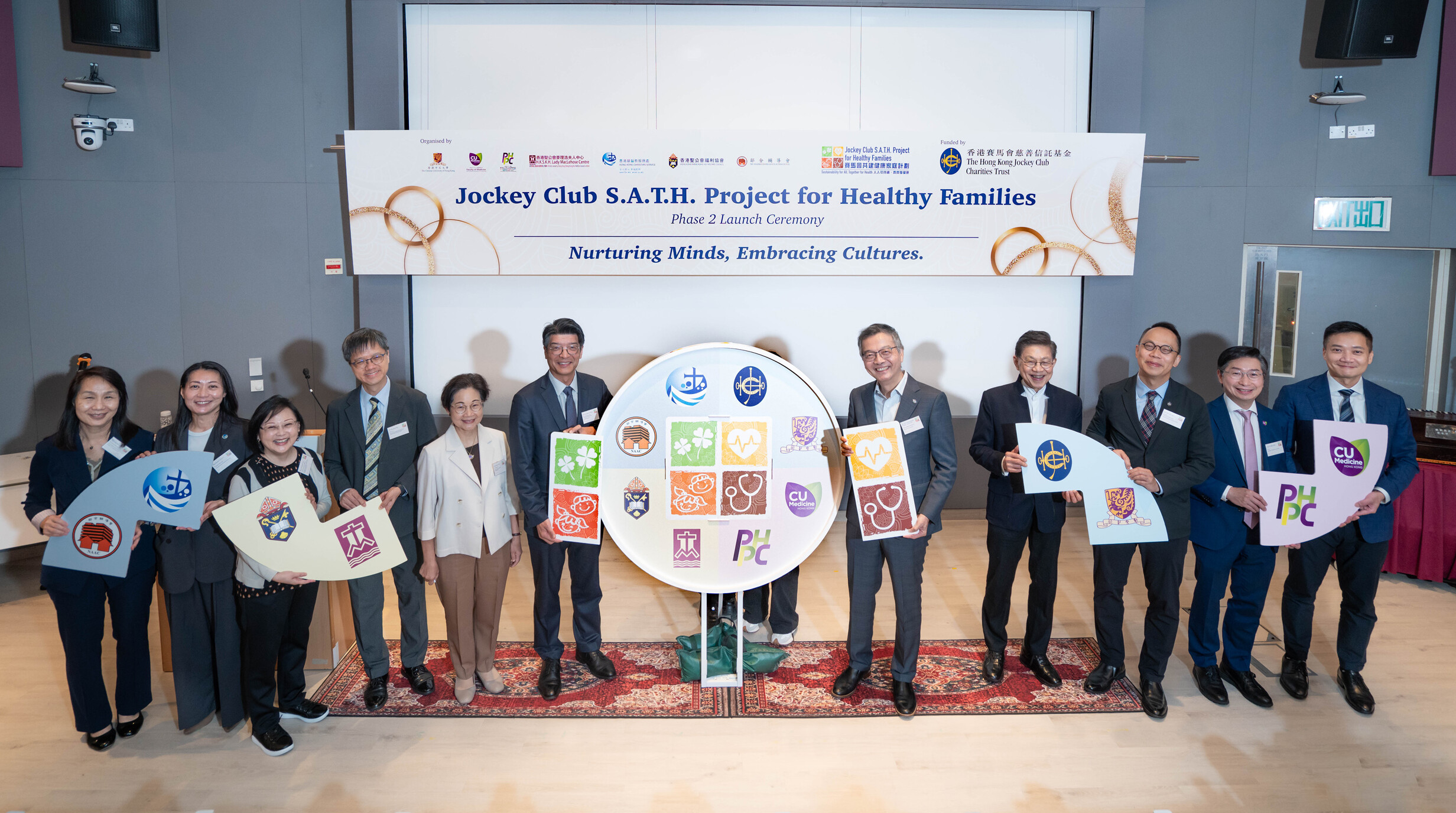
Guests attending the kick-off ceremony include Dr Pang Fei-chau, Commissioner for Primary Healthcare of the Hong Kong government’s Health Bureau (6th from the left); Dr Lam Ching-choi, Non-Official Member of the Executive Council of the Hong Kong government (5th from the right); Ms. Linda Lam, Chairperson of the Equal Opportunities Commission (5th from the left); Dr Rex Hung, Deputy Executive Manager, Charities, The Hong Kong Jockey Club (3rd from the right); Professor Philip Chiu, Dean of CU Medicine (2nd from the right); Professor Samuel Wong, Director of The Jockey Club School of Public Health and Primary Care of CU Medicine (1st from the right); Professor Yeoh Eng-kiong, Director of Centre for Health Systems and Policy Research at CUHK (4th from the right).
Officiating at the launch ceremony of the Phase 2 service, Professor Philip Chiu Wai-yan, Dean of CU Medicine, remarked: “Health equity, meaning that everyone regardless of their ethnicity can achieve equal access and opportunities to optimal health, is the foundation of a holistic healthcare system. We are very grateful to The Hong Kong Jockey Club Charities Trust for its continued support of JCSATH, enabling us to improve our ethnically diverse communities’ access to mental health services and primary care, and to enhance their health literacy.”
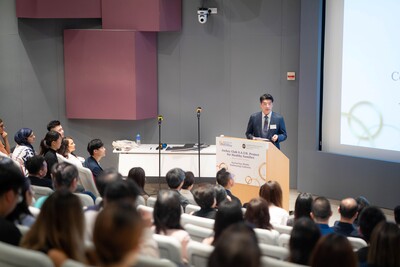
Dr Pang Fei-chau delivers a keynote speech.
Dr Pang Fei-chau, Commissioner for Primary Healthcare in the Hong Kong government’s Health Bureau, said at the ceremony: “The ultimate goal of the Primary Healthcare Commission is protecting health through fostering ‘self-health management’ and ‘preventive care’ among all citizens, providing family health through community work and family doctor with subsidised schemes especially for underprivileged group. The JCSATH project excels in building confidence and skills within the community, ensuring that health literacy is not just disseminated but effectively applied within specific cultural contexts. This is the bedrock of effective prevention and long-term well-being: empowering families with the knowledge to adopt healthy lifestyle and behaviour every single day.”
Phase 1 survey showed many participants were unaware they had chronic health problems
Between October 2021 and March 2025, Phase 1 of JCSATH had provided health checks to 1,724 South Asian adults, as well as conducting a health survey. Results showed that the prevalence of several chronic diseases among these individuals was higher than that of the general Hong Kong population, including obesity, diabetes and anaemia in females (please refer to Table 1 for details). 18%, 43.3% and 50.6% of participants were unaware they had diabetes, hypertension or high total cholesterol respectively before conducting health assessments through the project.
Table 1: Comparison of chronic disease proportion between ethnically-diverse group and the general population
| Proportion in ethnically-diverse group (18-80 years old) | Proportion in general population* (15-84 years old) |
|---|---|---|
Obesity (BMI ≥ 25) | 75.5% | 32.6% |
Diabetes | 11.4% | 8.5% |
Anaemia (female only) | 46% | 12.3% |
*Data from the Department of Health’s Population Health Survey 2020-22
The team tailored health management plans for the participants’ health conditions and cultural backgrounds. High-risk participants were given referrals to seek further medical care and invited to join JCSATH’s follow-up interventions. JCSATH also organised over 1,000 workshops, reaching more than 11,500 people. Given that a significant number of participants are considered at high risk of chronic diseases, JCSATH will continue to work closely with District Health Centres (DHCs) to promote the use of existing primary care services for ethnically-diverse communities.
Mental health will take greater precedence in Phase 2
During Phase 1, mental health was identified as an important service gap. Results revealed that 9.1% of participants displayed depressive symptoms and 14.4% showed signs of anxiety – states that are closely tied to physical health and well-being. The mental health challenges encountered by ethnically-diverse communities are heavily influenced by social determinants such as low socioeconomic status, stigmatisation, limited health literacy and inadequate social support.
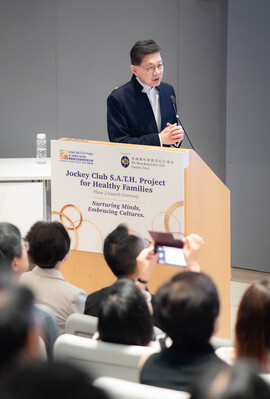
Professor Yeoh Eng-kiong presents a project overview and findings from Phase 1 of JCSATH.
With generous support from The Hong Kong Jockey Club Charities Trust, Phase 2 will allow JCSATH to prioritise holistic mental health services and interventions aimed at improving the overall well-being of participants. The programme is designed to include intake and follow-up health assessments through existing or jointly organised primary healthcare services, mental health promotion workshops, individual counselling, therapy groups and cultural sensitivity training for healthcare and social service professionals. It is expected to serve 2,000 high-impact beneficiaries and train 1,200 NGO staff, DHC staff and health ambassadors in cultural sensitivity.
Professor Yeoh Eng-kiong, JCSATH’s Principal Investigator and Director of the Centre for Health Systems and Policy Research, noted: “By combining the outcomes of both phases, JCSATH aims to design a comprehensive service delivery framework to enhance connectivity of ethnically-diverse communities with primary healthcare ecosystem in Hong Kong.”
Individuals and organisations interested in further details of initiatives and partnership opportunities can refer to the JCSATH website, and Facebook and Instagram pages.


